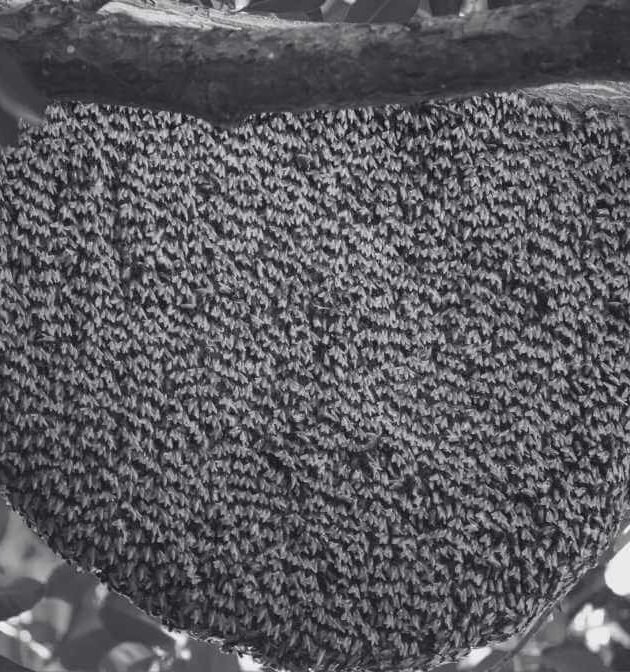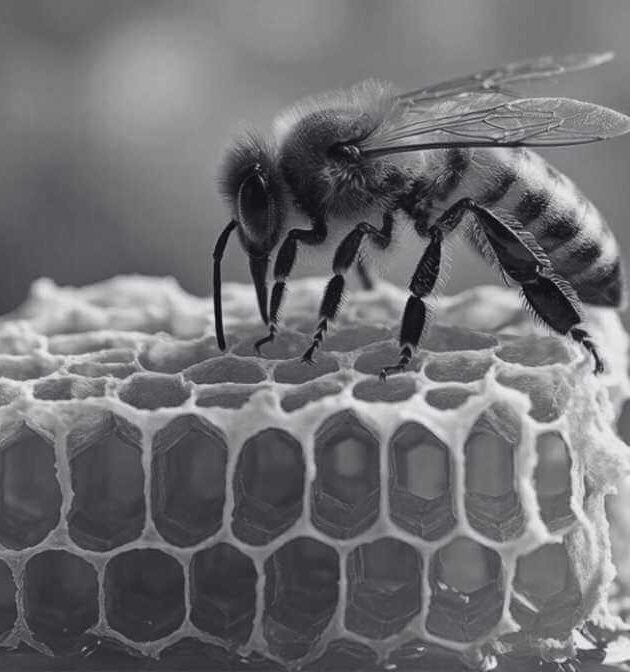
Mengenal Ratu Anai Anai Dan Tanggungjawabnya Di Dalam Koloni
March 6, 2025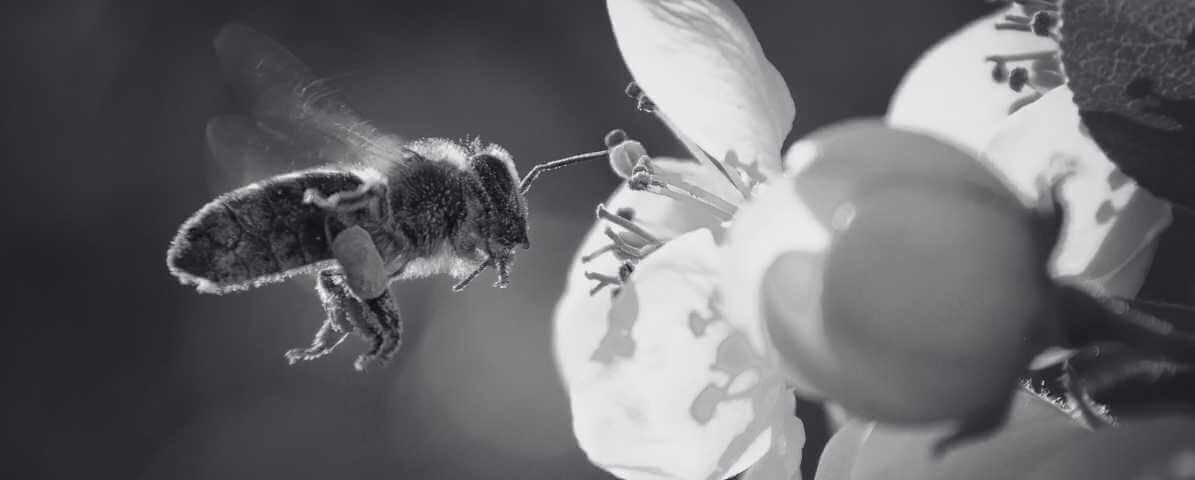
Bees Blog
By understanding these five reasons why honey bee plays an important role, we can take action. We can protect these remarkable creatures and the invaluable roles they play in sustaining the planet’s ecosystems.
Ultimate Guide to Understand the Importance of Bees in Our Lives
5 Reasons Honey Bee are Important to Our Ecosystem
Honey bees, particularly the species Apis mellifera, are vital components of many ecosystems around the world, including Malaysia. As important pollinators, they significantly influence biodiversity, food production, and overall ecological health. In this article, we will explore five key reasons why honey bees are essential to our ecosystem.
Pollination is a Vital Ecosystem Service Provided By Various Species Especially Bees
1. Pollination: The Essential Role of Honey Bee
One of the most critical functions that honey bees perform in our ecosystem is pollination. Bees pollinate a significant portion of flowering plants, which includes a variety of food crops and wild plant species. Estimate approximately 75% of the world's flowering plants and about 35% of global food crops depend on animal pollinators. With honey bees being among the most important pollinators.
When they collect pollen and nectar from flowers, they inadvertently transfer pollen from one bloom to another. This process leads to fertilisation and the production of seeds and fruit, which are crucial for plant reproduction. Honey bee colonies consist of a queen bee, worker bees, and drones, each playing a vital role in maintaining the colony's health and function. Worker bees are primarily responsible for foraging for nectar and pollen, which directly supports pollination efforts.
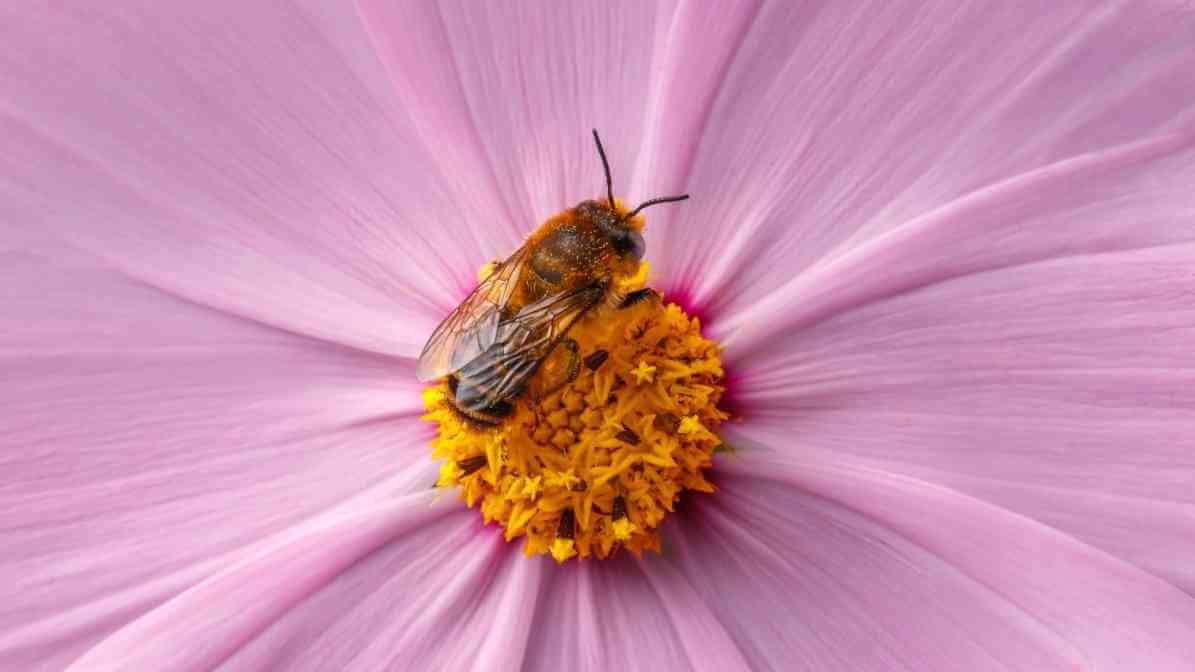
Honey bees pollinate many of the fruits and vegetables that form the foundation of our diets. Crops such as apples, almonds, blueberries, and cucumbers rely heavily on bee pollination. Without pollinators, food supplies would significantly decline, leading to reduce availability and higher prices for consumers. Furthermore, the global economy benefits from bees pollinating food crops, generating billions of dollars in agricultural revenue annually.
Encouraging Biodiversity of Wildflowers and Plants
2. Growth in Wild Plants: Honey Bee Contributing to the Ecosystem
Beyond the crops we cultivate, they also support the growth of countless wild plant species. The health of native bee populations, such as solitary and bumblebees, correlates with honey bee colonies in the ecosystem. The symbiotic relationship among various solitary bees species promotes plant diversity, which is crucial for resilient ecosystems.
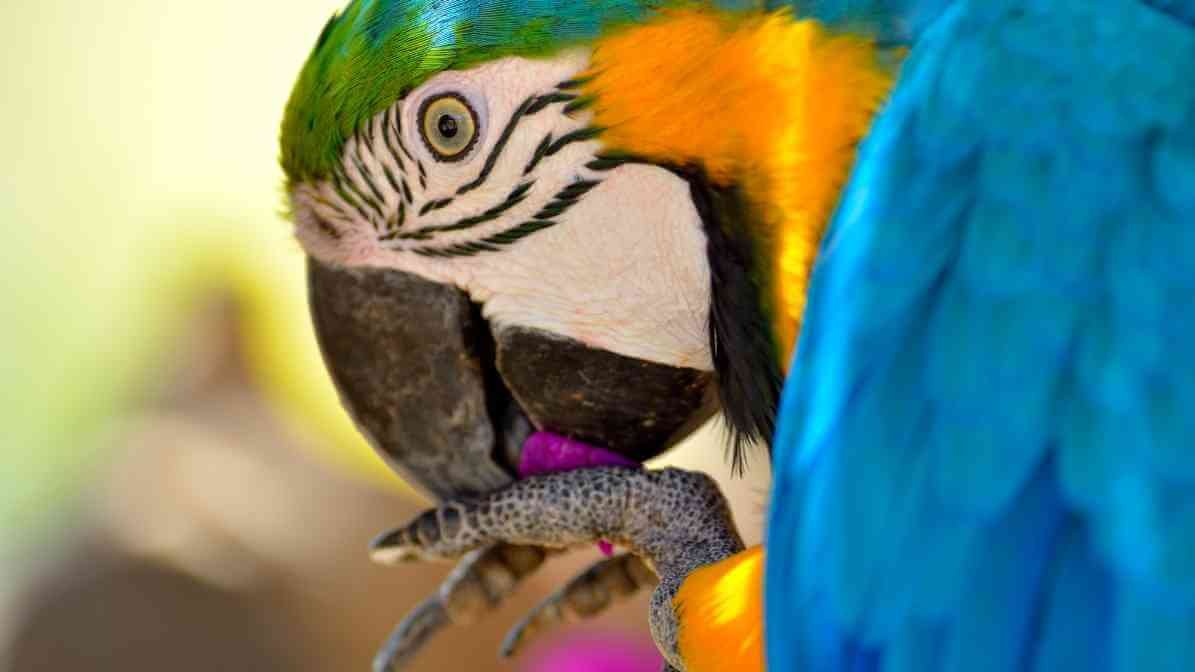
Honey bees and other pollinators contribute to the diversity of wildflowers and plants in their habitats. This variety is essential for maintaining ecosystems and promoting healthy wildlife populations. Bees pollinate a wide range of plants, sustaining the ecosystem's diverse community of organisms. From small insects to birds and mammals.
In Malaysia, wildflowers such as orchids and hibiscus provide essential habitats for countless species. Honey bees play a role in conserving biodiversity in local ecosystems by supporting the growth of these plant species.
Benefits of Honey as a Food Source and Traditional Medicines
3. Nutritious Food Source Produce by Honey Bee
These species are not only critical for pollination but also for the production of honey. A nutritious food source with various health benefits. Honey, produced by foraging bees from the nectar of flowers, contains vitamins, minerals, antioxidants, and antimicrobial properties. This sweet natural food reach almost everyone worldwide in traditional medicine for centuries.
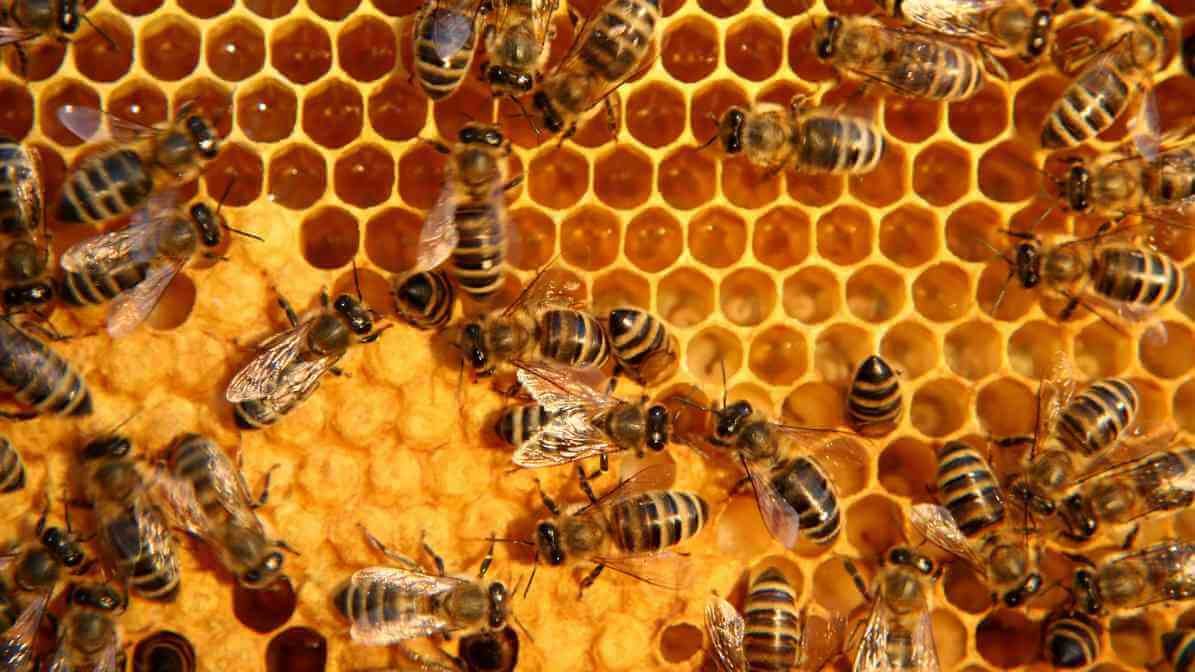
Honey and royal jelly produce by honey bee colonies is versatile and use in a variety of ways. It serves as a natural sweetener, an ingredient in countless recipes, and a key component in traditional remedies. The nutrient-rich composition of honey contributes to improved digestion, enhanced immunity, and overall health.
The presence of honey bees in an ecosystem ensures that local communities have access to this valuable food source. In regions where honey production is prevalent, such as in Malaysia, honey not only provides sustenance. It also supports local economies and encourages sustainable agricultural practices.
Supporting Animal Populations, Honey Bee Creating Habitat for Other Wildlife
4. Honey Bee Species Supports Wildlife and Their Habitats
They play a vital role, maintaining wildlife habitats, supporting growth of plants. Plants that provide food and shelter for various animals. Many creatures depend on the fruits, seeds, and foliage of flowering plants to survive. Highlighting the connection of all species within an ecosystem.
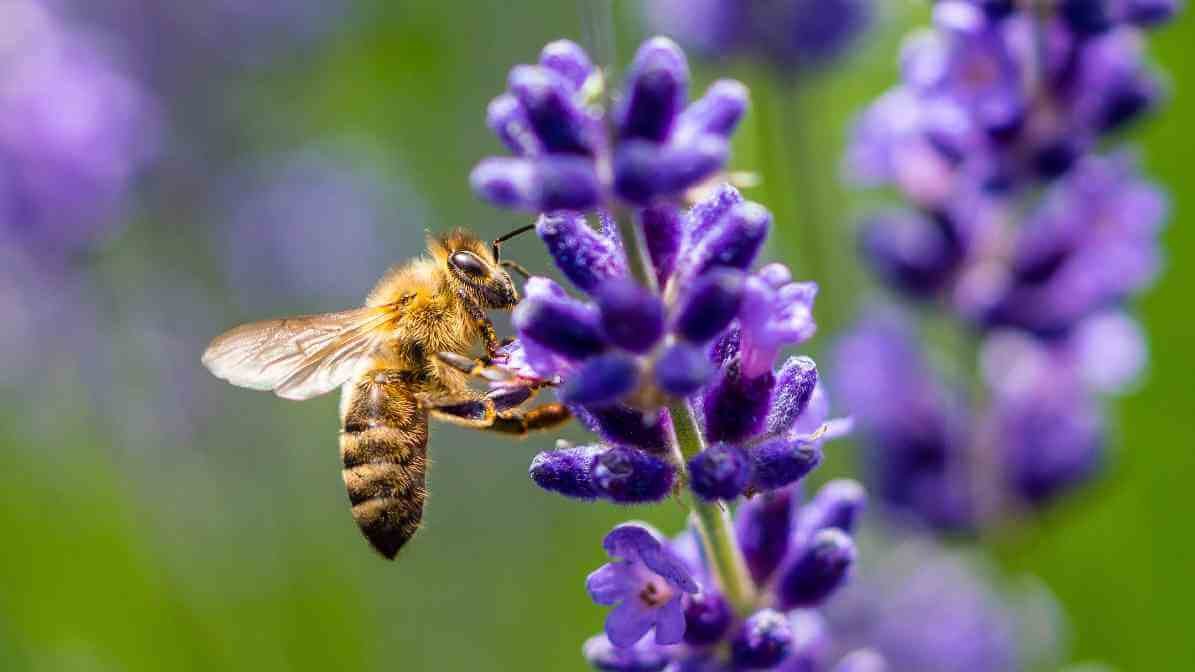
When they pollinate wildflowers and crops, they indirectly create habitats for other wildlife. For instance, birds often feed on fruits produced by pollinated plants, while small mammals consume seeds. The survival of these animal species links to the health of honey bee populations and vitality of flowering plants.
In Malaysia’s diverse ecosystems, pollinators are crucial for maintaining the balance of habitats supporting rich wildlife. This interconnectedness emphasises the importance of preserving bee populations for the overall health of the ecosystem.
The Ripple Effect of Honey Bee Population Declining
5. The Importance of Biodiversity (Biological Diversity)
They contribute significantly to biological diversity and play a crucial role in maintaining the balance of ecosystems. They pollinate a wide range of plant species, ensuring a diverse array of flora. which is essential for supporting various forms of wildlife. Biodiversity refers to the variety of life on Earth, encompassing different species of plants, animals, and microorganisms.
Healthy ecosystems rely on this diversity to function optimally. A decline in bee populations, often because of factors like pesticide use, habitat loss and colony collapse disorder. It can lead to reduced plant diversity, which in turn affects the entire food web. When their populations decline, the consequences can be severe.
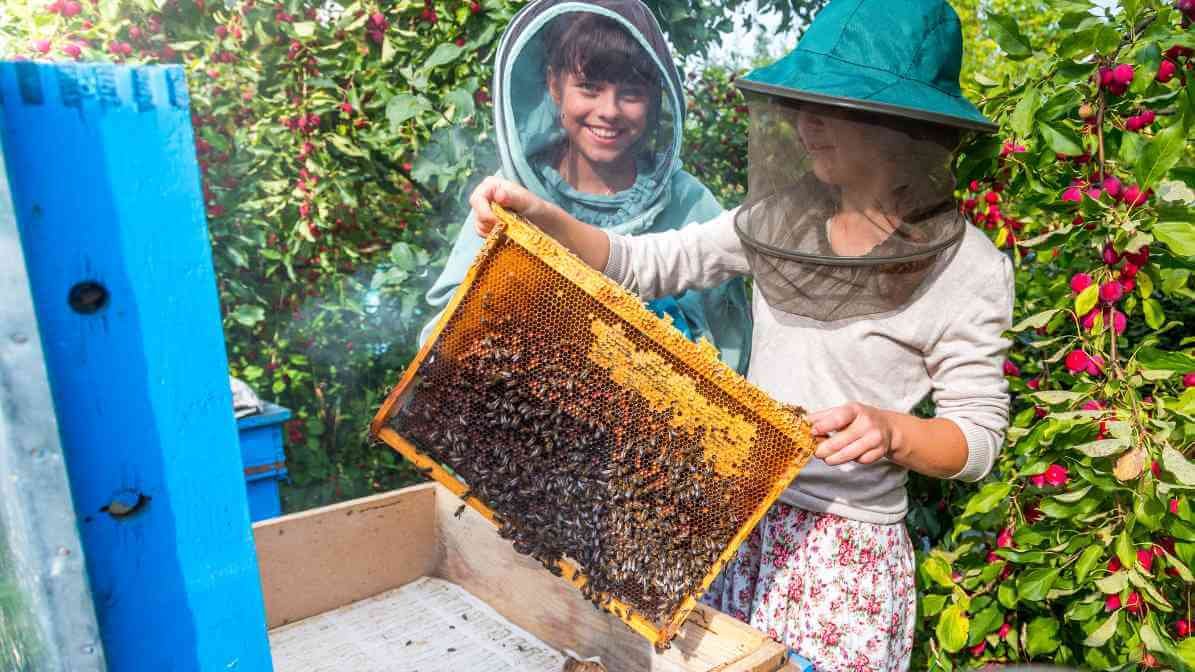
Fewer bees mean less pollination, resulting in a significant decrease in the number of flowering plants. This decline can lead to the loss of habitats for various species that depend on those plants for food and shelter. If a particular plant species that provides food for a specific bird is reduce, that bird population may decline. This is because of the unavailability of its primary food source.
Where Will Happen Globally If Bees Extinct?
We lose all plants that bees pollinate, every animals that consume these plants and so forth in the food chain. Without bees we struggle to sustain the human population of 7 billion globally. Our marts will only have half the number of fruits and vegetables.
Promoting a Resilient Ecosystem
Preserving Honey Bee and Other Pollinating Species
Maintaining healthy honey bee populations and bee friendly gardens is essential for enhancing biodiversity within ecosystems. Biodiversity contributes to ecosystem resilience, allowing it to withstand changes such as climate fluctuations and human activities. Healthy ecosystems are better equip to recover from disturbances, maintain water quality, and store carbon. All these are crucial for the health of the planet.
Preserving the honey bee, especially the European honey bee (Apis mellifera), and other native bee species significantly impacts sustainable environmental practices. Countries like Malaysia, rich in biodiversity, can benefit from focusing on bee conservation. An efforts to support the broader ecosystem in which these bees live and thrive.
Professional Bee Removal and Relocating Services
Innovative Pest Blog Summary
In conclusion, honey bees are indispensable to our ecosystem because of their multifaceted roles in pollination. Supporting the growth of wild plants, producing nutritious food sources, maintaining wildlife habitats, and enhancing biological diversity. As important pollinators, they help ensure that we have abundant food supplies. This includes fruits and vegetables that are essential for human nutrition.
With the ongoing threats posed to bee populations, including habitat destruction, pesticide exposure, and climate change. Vital for individuals, communities, and policymakers to recognise the importance of bees in our environment. Supporting sustainable farming practices, preserving natural habitats, and fostering bee-friendly spaces. This can contribute to the health of honey bee colonies and, consequently, the health of our ecosystems.
Why Clients Choose Us
✔ Years of Experience in Malaysia & Singapore
Our dual-market presence strengthens our capabilities and enhances our understanding of pest patterns across climates.
✔ Proven Results Across a Wide Range of Cases
From minor infestations to complex structural infestations, our case studies showcase our technical accuracy and problem-solving skills.
✔ Eco Friendly Commitment
We prioritise materials and treatments that reduce environmental impact while maintaining maximum effectiveness.
✔ Professional Guidance on Pest Identification
Our specialists guide customers on identifying early warning signs. Especially for termites, bed bugs and rodents, ensuring quick and accurate response.
✔ Clear Communication and Honest Reporting
Every treatment comes with documentation, service reports and preventive recommendations.
✔ Long-Term Protection Strategies
Our focus is not only to fix pest issues today, but to protect your space for the future.


